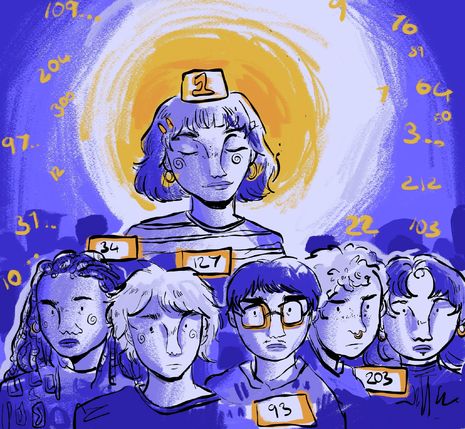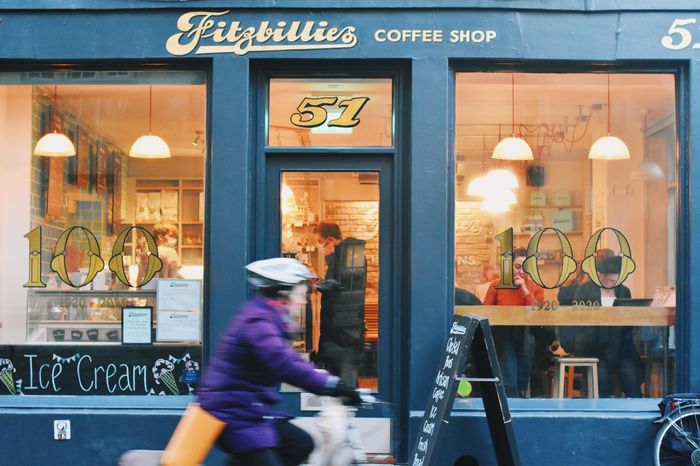‘There’s no winner’: Is topping Tripos worth it?
Gwenno Robinson meets the students to who topped Tripos to find the secret to their success

It’s quiet period at Cambridge University. Noise is kept to a minimum. Social events past dusk are a rarity. Nightclubs close their doors while libraries open theirs beyond their daylight hours. Colleges shut their heavy gates, perhaps to keep out the tourists, perhaps to keep the students in.
Exam season in Cambridge is notoriously competitive. Students don’t just receive a grade for their exams, but a ranking of where they placed within their cohort. Until 2016, these rankings or ‘class lists’ were published publicly outside the Senate House on Kings Parade. Growing disillusionment among students eventually led to an ‘opt-out’ system. By 2021, the University discontinued altogether the 300-year-old tradition of publicly displaying class lists.
“The validation lasted for maybe 30 minutes”
Rankings might not be displayed publicly anymore, but students are still made aware of their ranking. Some colleges still have a “scholars’ ballot”, which gives preferential room allocation to those who performed exceptionally well. ‘Tripos toppers’ as they’re known, carry a certain air of mystery, their names ushered in conversation. Finding them for this piece proved to be quite the challenge. I was handed phone numbers and emails to contact them, never social media accounts (unless we’re counting LinkedIn, that is).
Topping tripos seemed to come as a surprise to everyone I spoke to. Mizy ranked first in his final year in Sociology, after ranking second the previous year. He received a starred first, admitting “I didn’t even realise the category of mark existed!”. In the weeks following his exams, he convinced himself that he’d got a 2:2 but admits that a part of him knew he’d “done really well”. Ollie, who topped the German tripos last year, tells me how it was never his aim to top tripos, “I had no idea that would ever happen”.
When I press them all on the biggest benefits of tripos topping, nearly everyone alludes to the monetary benefits on the table for tripos toppers. In 2016, the University set aside a new prize fund, worth £1.4 million to reward those who achieve the most “outstanding results” in their exams. Freya (not her real name), who topped Psychology last year couldn’t believe how much money she got given. Topping tripos finally gave her the confidence to go into academia and realise her potential in the field. She’s now studying for a PhD in London.
“It’s been a bit of a curse”
“It’s a good ego boost, right?” confessed Emma (not her real name), who topped Geography last year. Like Freya, it confirmed her ambition to go onto studying for a Masters. It proved a big confidence boost for Ollie too. He went to a state-school in the North and is the first of his family to go to Cambridge, “If I ever had any doubts about my academic abilities at Cambridge, those have certainly gone”.
I notice they’re all keen to get to the more negative aspects of topping tripos. Within the first minute of meeting her, Emma confesses how “it’s been a bit of a curse”. Emma topped tripos in her first year and feels considerably more pressure for her upcoming her exams this year: “Once you set that bar for yourself, you know it’s something you’re capable of doing again”. Ollie’s also feeling the pressure this year. He tells me of how it’s always in the back of his mind that he’s not working enough, “I didn’t feel this last year. I had no benchmark like I do now”.
I ask them all whether they feel at all validated by the experience. Mizy chuckles lightly to himself, and a smile appears across his face, “Not at all”. He confesses that the validation lasted “for maybe 30 minutes” before he began scrutinizing his marks in each of his papers, “immediately trying to find flaws… thinking I could have done better in this or that paper”. Emma doesn’t see the result as an accurate reflection of her ability and doesn’t feel validated by it either: “I don’t think it signifies anything to be honest… you only understand how little of a deal it is when you’re in that position”.
Katie is the last person I speak to. She topped the Classics tripos last year. I meet her at the ARC Café one rainy Thursday afternoon between downpours. She plays with her sleeve and confesses how she wishes she’d never topped tripos at all, “It should be validating, but it’s not at all”. Katie alludes to her mental health struggles over the past year and how she hoped doing well academically would help. To her disappointment, it hasn’t helped “whatsoever”.
We move on to discuss how the ranking system feeds into the very competitive nature that got us our place in Cambridge in the first place. She glances down towards the floor, and shakes her head, “I don’t know what it is, I just never feel like I’ve achieved anything yet”. She tells me of how she wishes she could just be content with herself and her achievements. “It doesn’t help anyone. There’s just no winner”, she says with an empty smile.
The sky clouds over again. I pour away the dregs of my coffee and we quickly say our goodbyes as the next downpour begins again.
I awkwardly shout after her, “Good luck… for exams!”, not that she needs it, or perhaps even wants it.
 News / Cambridge students set up encampment calling for Israel divestment6 May 2024
News / Cambridge students set up encampment calling for Israel divestment6 May 2024 News / Cambridge postgrad re-elected as City councillor4 May 2024
News / Cambridge postgrad re-elected as City councillor4 May 2024 News / Some supervisors’ effective pay rate £3 below living wage, new report finds5 May 2024
News / Some supervisors’ effective pay rate £3 below living wage, new report finds5 May 2024 Fashion / Class and closeted identities: how do fits fit into our cultures?6 May 2024
Fashion / Class and closeted identities: how do fits fit into our cultures?6 May 2024 Features / Cambridge punters: historians, entertainers or artistes? 7 May 2024
Features / Cambridge punters: historians, entertainers or artistes? 7 May 2024






